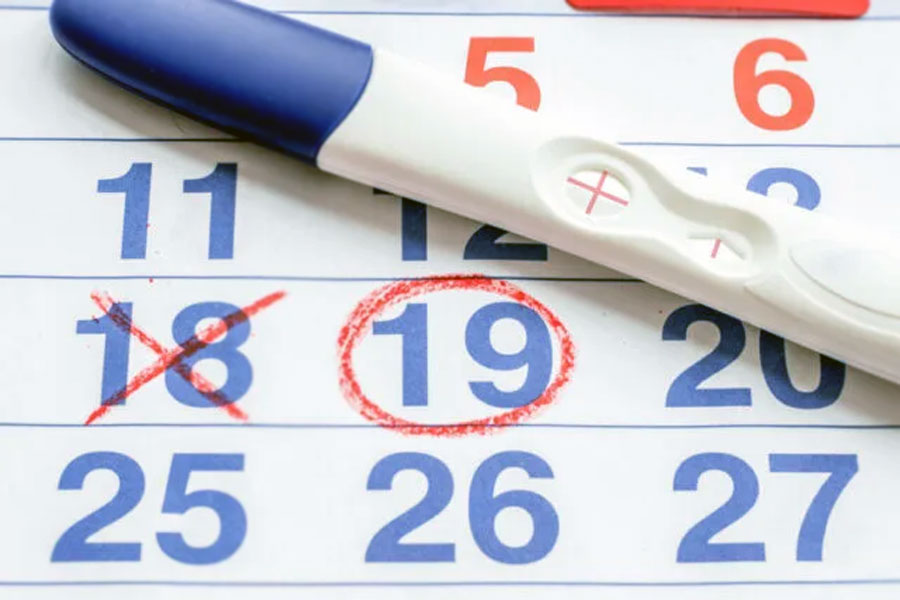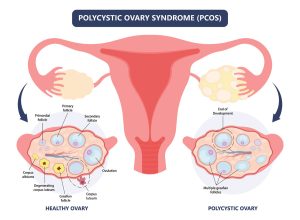When people engage in sexual activity without protecting themselves with condoms or other forms of birth control, they engage in what is known as “unprotected sex.” Both unmarried persons and married people who choose not to use protection are engaging in “unprotected sex.” Sexual activity without protection can provide joy and closeness, but it also poses risks, such as the transmission of STDs and unwanted pregnancies (STIs). Hence, before participating in unprotected sex, one should think carefully about their alternatives and take measures to protect themselves.
When to Perform Pregnancy Testing
If you have engaged in sexual activity without using protection, you should take immediate steps to find out if you are pregnant. Many factors, including the date of the unprotected intercourse and the type of test you pick, will determine the optimal time to take a pregnancy test. Pregnancy tests should be taken at least a week after the last unprotected intercourse.
Timeliness of Tests and How They Are Affected by Many Circumstances
Whether you can take a pregnancy test may depend on how long ago you engaged in unprotected intercourse. You may be able to take a pregnancy test sooner if, for instance, you engaged in unprotected intercourse during, just before, or after ovulation. When you can take a pregnancy test is also dependent on the type of test you use.
Fertilization and ovulation
When an egg is released from the ovary, it can be fertilized. This process is called ovulation. Conception is more likely to occur if unprotected intercourse takes place at this time. You may be able to take a pregnancy test sooner if you had unprotected intercourse during ovulation than if it happened at another point in your cycle.
Pregnancy Testing Kits for the Home
The most popular sort of pregnancy test is a home test, which may be performed as early as one week after unprotected intercourse. These assessments work best in the morning, but their reliability decreases as the day progresses. Doing the test first thing in the morning will yield the most reliable results. If you want precise outcomes, it’s also crucial to read and follow the directions thoroughly.
Pregnancy Testing via Blood
Pregnancy tests performed on blood samples are more reliable than those performed at home, but they are less accessible. The earliest they may be taken is six days after unprotected intercourse; however, waiting a week is recommended. Blood hCG levels are evaluated, as this hormone is released after a fertilized egg has implanted in the uterus.
Other Signs of Pregnancy
A pregnancy can be confirmed in many ways other than just by taking a test. Nausea, breast soreness, tiredness, and cravings are all possible side effects. There are other conditions that might produce similar symptoms, so it’s crucial to confirm pregnancy with a test.
Prenatal Care: An Important First Step
There are a few things to keep in mind for the sake of both your and your unborn child’s health throughout pregnancy. For instance, you should ensure that you’re getting enough folic acid and other crucial nutrients. In addition, you should stay away from substances like alcohol, nicotine, and narcotics since they might have a bad effect on the health of your unborn child.
Several testing options
There are alternatives to taking a pregnancy test if you either don’t want to or can’t wait a week after unprotected sex to find out whether you’re pregnant. The “morning-after pill,” a kind of emergency contraception, may be available. To prevent pregnancy, this tablet can be used up to five days following intercourse without protection.
Predicting When You Should See a Doctor
Get checked out as soon as possible if you have any suspicions that you could be pregnant. Your doctor will be able to advise you on the best course of action and may also have extra resources on pregnancy that you may use. In addition, if you’ve engaged in sexual activity without using protection, you should get tested for sexually transmitted infections to stave off any future health problems.
The consequences of unprotected sexual activity include unwanted pregnancies and the transmission of sexually transmitted diseases. Hence, before participating in unprotected intercourse, it is vital to think about your alternatives and take measures to protect yourself. A pregnancy test can be taken after one week of unprotected sexual activity. Interaction time, test type, and other factors like ovulation can all affect when you should take a pregnancy test. You should also be on the lookout for any possible pregnancy symptoms. Seeing a doctor quickly after suspecting pregnancy is crucial.







